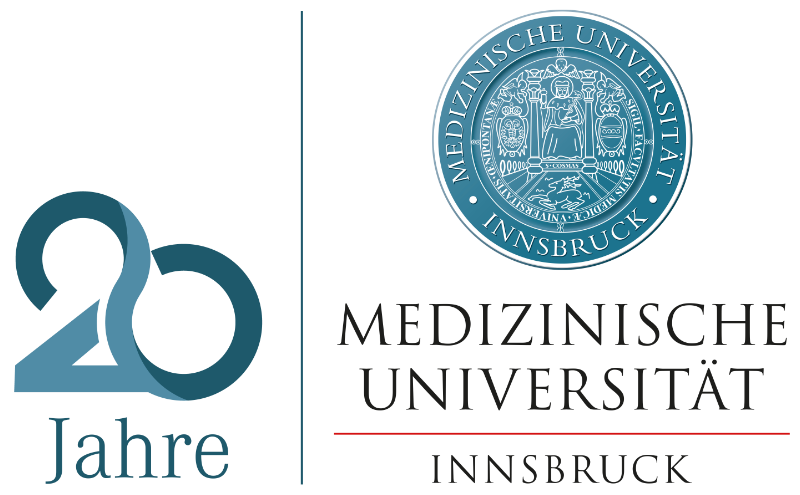Virotherapy of cancer
Members of project group:
- Catherine Dold, PhD student
- Carles Rodriguez Urbiola, PhD student
- Bettina Großlercher, technician
Achievements and Aims
Gene therapy of brain cancer
We have established several novel chimeric viruses that carry the envelope glycoproteins (GP) of the lymphocytic choriomeningitis virus (LCMV). Such chimeric viruses that carry a foreign viral envelope glycoprotein are called viral pseudotypes. We could show that LCMV GP is efficiently incorporated into the gammaretroviral and lentiviral vector envelope. These LCMV GP pseudotype vectors are under development for the treatment of brain cancer. Experiments in a rat glioblastoma model show that LCMV GP pseudotypes have high specificity and efficacy in the transduction and eradication of glioblastoma (Miletic et al., 2004, 2007, Huszthy et al., 2009). Rats treated with LCMV GP pseudotype vectors that transfer a suicide gene were all cured from brain cancer, while over 90% of the animals in the control group died. However, spread of the replication incompetent retroviral vectors within the tumor is limited.
Oncolytic virotherapy of cancer
Taking into account that human cancers are much larger than murine cancers, we believe that the dissemination of viral vectors throughout the tumor may not be sufficient to achieve a profound therapeutic effect in man. We therefore moved to the development of replication competent viruses, which are expected to spread within the tumor, for cancer therapy. Here, we chose a virus that is known to preferentially replicate in cancer cells, a so-called oncolytic (cancer destroying) virus. We found that the highly potent oncolytic vesicular stomatitis virus (VSV) incorporate the LCMV GP glycoprotein on the viral surface, thereby generating the VSV-GP pseudotype virus. In contrast to wild-type (wt) VSV, which replicates in neurons and thus is highly neurotoxic, the VSV-GP does not infect neural cells, but still infects and kills cancer cells as efficiently as wt VSV (Muik et al., 2014). In the group of D. von Laer, oncolytic VSV-GP pseudotypes are currently under development for the treatment of melanoma, brain, porstate and ovarian cancer. In addition, carrier cell systems based on tumor infiltrating cells for the delivery of oncolytic viruses and vectors are under development. A spin-off biotech company, ViraTherapeutics GmbH, has been founded to develop VSV-GP-based drugs for a broad range of different cancers.
References
- Beyer, W., Westphal, M., Ostertag, W., von Laer, D.: Oncoretroviral and lentiviral vectors pseudotyped with lymphocytic choriomeningitis virus glycoprotein: generation, concentration and broad host range. J. Virol. 76:1488-1495, 2002.
- Miletic, H., Fischer, Y., Neumann, H., Hans, V., Giroglou, T., Deckert, M., von Laer, D.: Selective transduction of malignant glioma by lentiviral vectors pseudotyped with LCMV glycoproteins. Hum. Gene Ther. 15:1091-1100, 2004.
- Miletic, H., Fischer, Y., Litwak, S., Giroglou, T., Waerzeggers, Y., Winkeler, S., Rueger, A., Himmelreich, U., Stenzel, W., Deckert, M., Jacobs, A.H., Neumann, H., von Laer, D.: Bystander-mediated killing of malignant glioma by bone marrow derived adult progenitor cells expressing a suicide gene. Mol. Ther. 15:1373-81, 2007.
- Miletic, H., Fischer, Y., Giroglou, T., Rueger, M.A., Li, H., Himmelreich, U., Stenzel, W., Jacobs, A.H., von Laer, D.: Normal brain cells contribute to the bystander effect in a suicide gene therapy - approach for malignant glioma using lentiviral pseudotyped vectors. Clin. Cancer Res. 13:6761-8, 2007.
- Huszthy, P.C., Goroglou, T., Tsinkalovsky, O., Euskirchen, P., Skaftnesmo, K.O., Bjerkvig, R., *von Laer, D., *Miletic, H.: Remission of invasive, cancer stem-like glioblastoma xenografts using lentiviral vector-mediated suicide gene therapy. PlosONE 4(7):e6314, (Jul 20) 2009. *contributed equally
- Muik, A., Kneiske, I., Werbizki, M., Wilflingseder, D., Giroglou, T., Ebert, O., Kraft, A., Dietrich, U., Zimmer, G., Momma, S., von Laer, D.: Pseudotyping vesicular stomatitis virus with lymphocytic choriomeningitis virus glycoproteins enhances infectivity for glioma cells and minimizes neurotropism. J Virol. Jun;85(11):5679-8, 2011.
- Muik, A., Dol, C., Geiß, Y., Volk, A., Werbizki, M., Dietrich, U., von Laer, D.: Semireplication-competent vesicular stomatitis virus as a novel platform for oncolytic virotherapy. J Mol Med (Berl). 2012 Aug;90(8):959-70.
- Muik, A., Stubbert, LJ., Jahedi, RZ., Geiß, Y., Kimpel, J., Dold, C., Tober, R., Volk, A., Klein, S., Dietrich, U., Yadollahi, B., Falls, T., Miletic, H., Stojdl, D., Bell, JC., von Laer, D.: Re-engineering vesicular stomatitis virus to abrogate neurotoxicity, circumvent humoral immunity, and enhance oncolytic potency. Cancer Research 2014 Jul 1;74(13):3567-78.
- Patent family: LCMV-GP-VSV-Pseudotypvektoren und tumorinfiltrierende Virenproduzentenzellen zur Therapie von Tumoren. (DE10 2008 050 860.8, Priority: 8.10.2008), Patent applications in CA, EU, JP, US, China.





